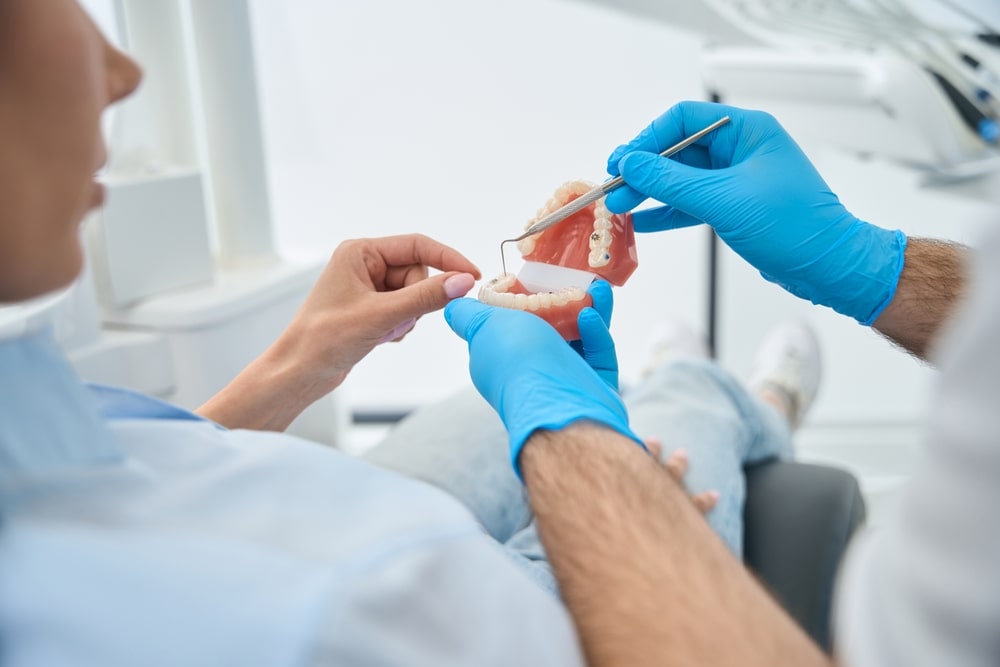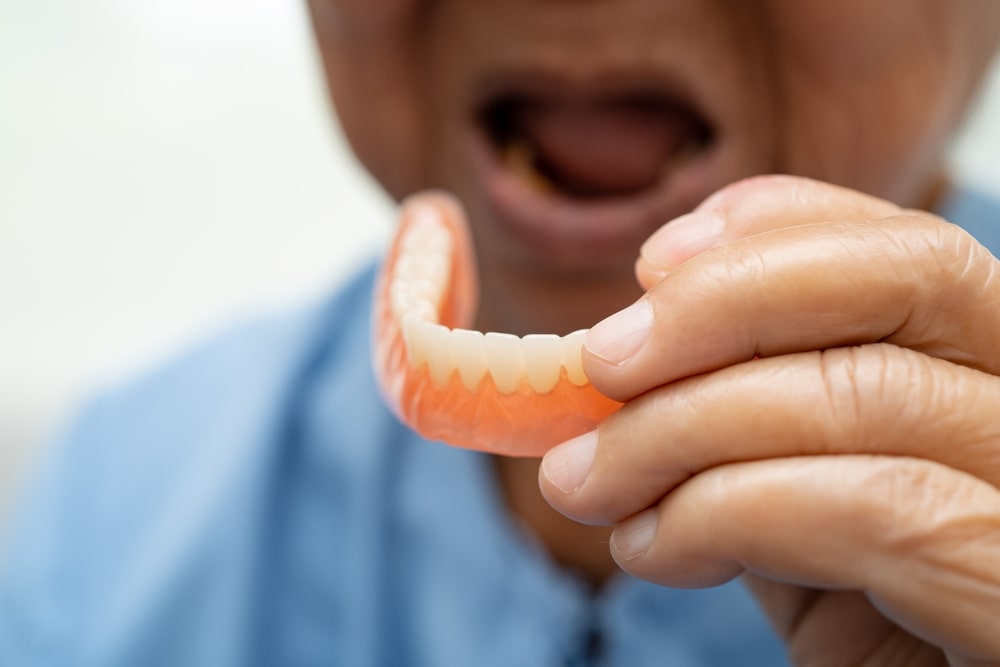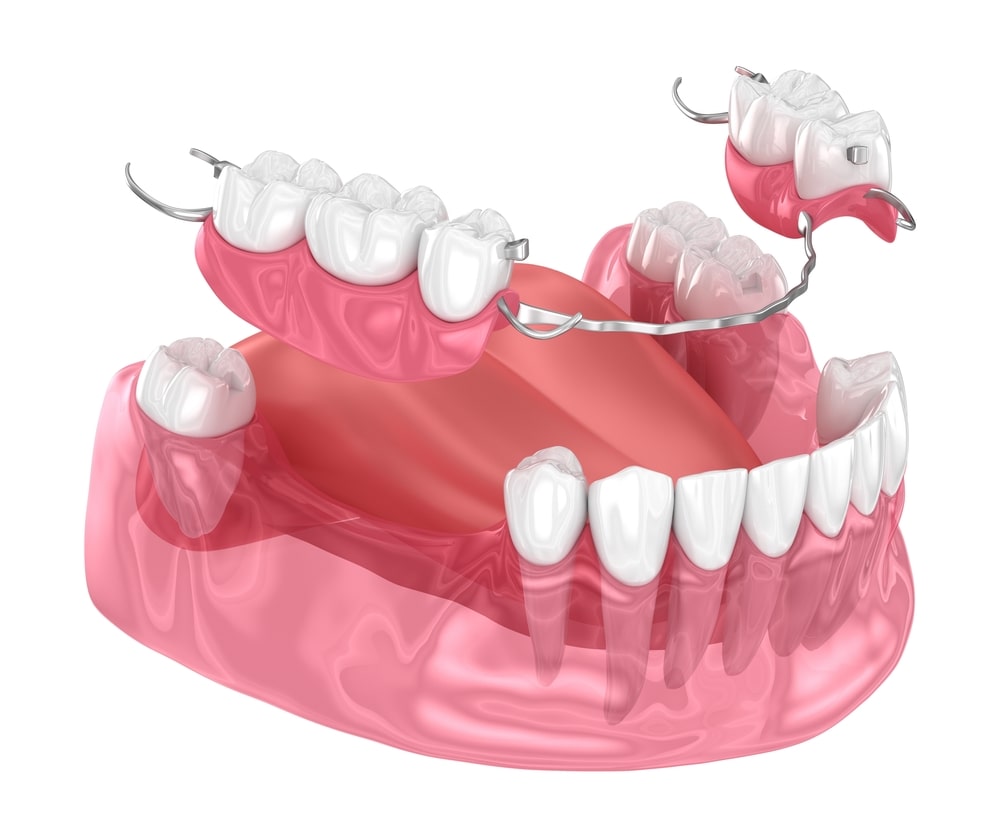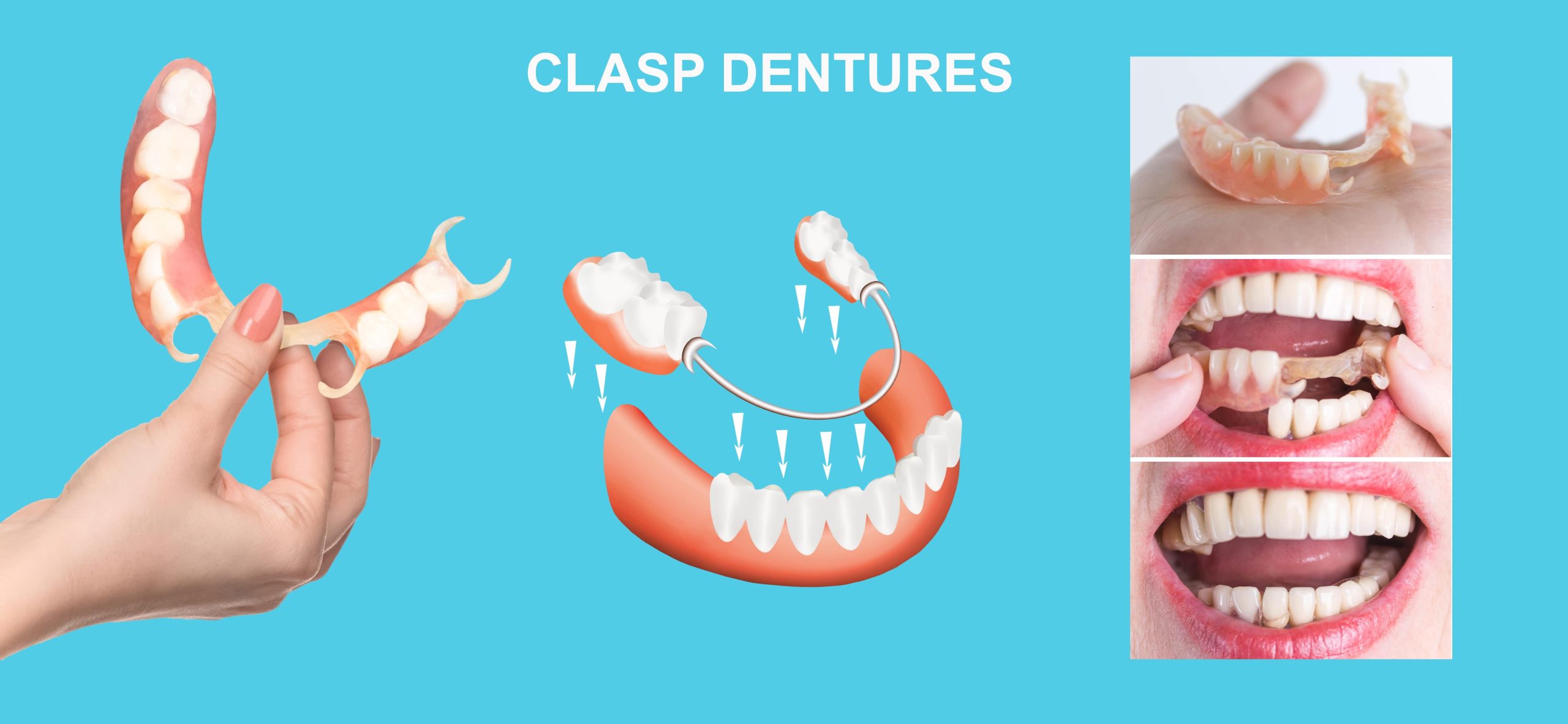Picture this: You’re enjoying your favourite meal, perhaps a delicious, crusty bread or a crisp apple, when suddenly, your dentures feel… off. They might shift slightly, cause a sore spot, or even make a little clicking sound. Or maybe you’ve noticed food getting trapped underneath them more often, or your speech isn’t quite as clear as it used to be. These aren’t just minor annoyances; they’re often clear signals that your dentures, once a perfect fit, are now showing signs of wear and tear or, more commonly, that your mouth has changed. Just like a well-worn pair of shoes eventually needs new insoles or a resole, your dentures also require professional care to maintain their comfort and function. At Bur Oak Dental, we understand that living with ill-fitting dentures can be frustrating and even impact your quality of life. That’s why we believe in empowering our Markham community with clear, accessible knowledge.
Today, let’s explore two common and highly effective solutions for loose-fitting dentures: reline and rebase. These aren’t just technical terms; they’re pathways back to comfortable chewing, confident speaking, and a happy smile.
Why Your Dentures Stop Fitting Like a Glove: The Unseen Changes in Your Mouth
It’s easy to think of dentures as static, unchanging prosthetics. But the reality is, your mouth is a dynamic environment, constantly adapting.
The most significant reason dentures lose their snug fit is a natural biological process called bone resorption.
Think of your jawbone as a foundation. When natural teeth are present, their roots stimulate this bone, keeping it strong and dense.
Once teeth are removed, that stimulation ceases, and over time, the jawbone naturally begins to shrink and remodel.
This is a gradual process, but it can lead to noticeable changes in the shape of your gum ridges, causing the underlying structure that supports your dentures to change.
Beyond bone resorption, other factors contribute to dentures becoming loose:
- Weight Fluctuations: Significant weight loss or gain can alter facial structure, including the soft tissues that support dentures.
- Aging: As we age, our tissues naturally change, affecting the elasticity and contours of our gums.
- Wear and Tear: Dentures themselves can wear down over time, or the acrylic base can become less stable.
- Gum Disease: While dentures replace teeth, gum health is still crucial. Underlying gum issues can impact denture fit.
When these changes occur, the once-perfect space for your dentures shifts, creating gaps between the denture base and your gum tissue.
This leads to the common problems we mentioned earlier: slipping, clicking, and discomfort.
Ignoring these signs can lead to more serious issues like chronic sore spots, accelerated bone loss, difficulty eating and speaking, and even a negative impact on your overall nutrition.
Denture Reline vs. Rebase: Unpacking the Core Differences
Both relining and rebasing are professional procedures aimed at improving the fit of your dentures by adjusting the part that rests against your gums.
However, they differ significantly in their scope and the extent of the work involved. Imagine them as different levels of renovation for a house – one might be a surface refresh, while the other is a structural overhaul.
What is a Denture Reline?
A denture reline is like giving your dentures a fresh, new lining. This procedure focuses on resurfacing the inner surface of your denture base – the part that comes into direct contact with your gums.
It’s designed to re-establish a tight seal and restore comfort when your denture base is still structurally sound, but the fit has become loose due to minor changes in your oral anatomy.
Key characteristics of a reline:
- Purpose: To improve the fit and comfort of a denture that has become loose due to minor gum and bone changes.
- Process: Your dentist or denturist will take an impression of your current gum ridges while you’re wearing your existing denture. This impression material acts as the new “lining.” The denture is then sent to a dental laboratory, where the impression material is replaced with new, durable acrylic, restoring the snug fit.
- Timing: Often needed every 1-2 years as part of regular denture maintenance.
- Appearance: The outer appearance of your denture and the position of the teeth remain unchanged.
There are two main types of relines:
- Hard Reline: This is the most common type. A durable, rigid acrylic material is used to create a long-lasting, precise fit. It’s ideal for patients with stable gum tissue and a structurally sound denture. The procedure usually involves taking an impression and sending the denture to a lab, meaning you might be without your denture for a day.
- Soft Reline: For patients with very tender, sensitive, or healing gums, a soft, flexible, rubber-like material can be used for the reline. This offers a more cushioned fit and can be particularly beneficial after recent extractions or to help condition gum tissue before a hard reline. Soft relines generally don’t last as long as hard relines and may need to be replaced more frequently.
What is a Denture Rebase?
A denture rebase, on the other hand, is a more comprehensive procedure. It involves replacing the entire acrylic base of your existing denture while keeping the original denture teeth.
Think of it as putting your perfectly good car engine (the teeth) into a brand-new car body (the base).
Key characteristics of a rebase:
- Purpose: To improve the fit, stability, and strength of a denture when the existing base is significantly warped, cracked, weakened, porous, or when there have been substantial changes in your oral anatomy that a simple reline can’t address.
- Process: Your dentist or denturist will take a new impression of your mouth, and then your denture’s teeth are carefully removed from the old base. A brand-new, custom-fitted acrylic base is fabricated around these original teeth.
- Timing: Less frequent than a reline, often recommended every 5-7 years, or when the denture base itself is compromised.
- Appearance: The position and appearance of your teeth remain the same, but the overall strength and fit of the denture are significantly enhanced.
Rebasing is often chosen when the existing denture teeth are still in excellent condition and cosmetically pleasing, but the base has deteriorated or the gum ridge has changed so dramatically that a simple reline wouldn’t provide adequate support or stability.
It essentially gives your “old” teeth a “new” foundation.
When to Consult Your Dentist: Signs Your Dentures Need an Adjustment
Recognizing the signs that your dentures need professional attention is the first step toward regaining comfort and confidence. Don’t wait until discomfort becomes unbearable.
Here are common indicators that it’s time to schedule a consultation with your dentist:
- Looseness or Slipping: Your dentures no longer stay firmly in place when you eat, talk, or laugh.
- Clicking Sounds: You hear a subtle clicking or popping sound when you chew or speak, indicating movement.
- Food Trapped Underneath: Food particles consistently get stuck under your denture, leading to irritation and potential infection.
- Recurrent Sore Spots: You develop persistent sore spots, blisters, or ulcers on your gums, even after minor adjustments. This is a key indicator that pressure points are unevenly distributed.
- Difficulty Chewing: You find it harder to chew certain foods, or your bite feels off.
- Changes in Speech: Your speech may sound muffled, or you may develop a lisp due to the denture moving.
- Facial Appearance Changes: Your lips might appear sunken, or facial wrinkles around the mouth may become more pronounced due to lack of support.
- Denture Odor: An older, porous denture base can absorb odors.
- Visible Wear or Damage: You notice cracks, chips, or rough spots on the denture base itself.
If you’re experiencing any of these symptoms, it’s crucial to seek professional advice.
During a free consultation at Bur Oak Dental, our team can assess your dentures and oral health to determine the best course of action, whether it’s a simple adjustment, a reline, a rebase, or perhaps even exploring options like dental implants for enhanced stability.
The Professional Adjustment Process: What to Expect
When you visit Bur Oak Dental for a denture adjustment, you can expect a thorough, patient-focused approach.
Our goal is always to restore your comfort and confidence with as little disruption as possible.
The Reline Procedure: A Closer Look
- Consultation & Examination: Your dentist will examine your mouth, current dentures, and discuss your symptoms to determine if a reline is the appropriate solution.
- Impression Taking: A special impression material is placed into the inner surface of your existing denture. You’ll then bite down gently, allowing the material to capture the exact contours of your gum ridges. This can often be done in the clinic.
- Lab Processing: Your denture, with the new impression, is sent to a dental laboratory. Here, the impression material is carefully removed, and a new layer of acrylic is precisely bonded to the inner surface of your denture base.
- Final Fitting: Once your relined denture returns from the lab (usually within a day for a hard reline), you’ll have a final fitting appointment to ensure the fit is snug and comfortable. Adjustments can be made if needed.
Time Commitment: A hard reline typically takes a day, meaning you might be without your dentures for that period.
A soft reline can sometimes be done chairside or with a quicker lab turnaround.
The Rebase Procedure: A More Extensive Renewal
- Comprehensive Evaluation: Your dentist will conduct a detailed examination, including x-rays, to assess the health of your jawbone and the condition of your existing denture base and teeth. This is crucial for determining if a rebase is indeed the best option, or if a new denture might be more suitable.
- Precise Impressions: Accurate impressions of your mouth are taken.
- Laboratory Fabrication: Your denture is sent to a dental laboratory. The existing teeth are carefully separated from the old base. A brand-new, custom-fitted acrylic base is then fabricated around these original teeth using the new impressions.
- Try-In (Optional for Rebase): In some cases, a wax try-in might be performed to verify the bite and aesthetics before the final acrylic base is processed.
- Final Fitting: Once the new rebased denture is ready, you’ll return for a final fitting to ensure optimal comfort, stability, and function.
Time Commitment: Rebasing is a more involved laboratory procedure and typically requires more time, often a few days, during which you may be without your dentures.
Beyond the Adjustment: Aftercare and Longevity
After a reline or rebase, your dentures should feel significantly more comfortable and stable. To ensure their longevity and maintain your oral health, follow these aftercare tips:
- Gentle Cleaning: Continue to clean your dentures daily using a soft-bristled brush and a non-abrasive denture cleaner. Avoid harsh toothpastes, which can scratch the new acrylic surface.
- Handle with Care: Always remove your dentures over a soft towel or a basin of water to prevent breakage if dropped.
- Nightly Soaking: Unless otherwise instructed (especially after a soft reline, where some materials may degrade with prolonged soaking), remove your dentures at night and soak them in a denture-cleaning solution or plain water. This gives your gums a rest and keeps the dentures moist.
- Regular Check-ups: Continue with regular dental check-ups, typically once a year. Your dentist can monitor your oral health, assess the fit of your dentures, and catch any potential issues early.
- Report Discomfort: If you experience any persistent sore spots, pain, or continued looseness after your adjustment, contact your dentist immediately. Minor adjustments can often resolve these issues quickly.
At Bur Oak Dental, we prioritize your long-term comfort and oral health. Our team is always here to provide guidance and answer any questions you may have about maintaining your oral hygiene.
Myth vs. Fact: Debunking Common Denture Misconceptions
When it comes to dentures, there’s a lot of information out there, and not all of it is accurate. Let’s clear up some common misunderstandings:
Myth: A reline makes my dentures “like new.”
Fact: A reline significantly improves the fit and comfort by resurfacing the base. However, if the teeth themselves are worn or the denture’s overall structure is compromised, a reline won’t address those issues. It’s a fit adjustment, not a complete restoration.
Myth: I can reline my dentures myself with a DIY kit.
Fact: Never attempt to reline your dentures at home. DIY kits use harsh, temporary materials that can cause chemical burns, uneven pressure points, and further damage your gums and jawbone. They often create a worse fit, accelerate bone loss, and can make professional treatment more difficult and costly in the long run. Always seek professional care for denture adjustments.
Myth: If my dentures are loose, I just need more adhesive.
Fact: While denture adhesive can provide temporary security, relying on excessive amounts of adhesive for loose dentures is a warning sign. It masks a fundamental fit problem that needs professional attention. Too much adhesive can trap bacteria and irritate gums, and it doesn’t prevent ongoing bone loss from an ill-fitting denture.
Myth: Dentures last forever.
Fact: While durable, dentures typically have a lifespan of 5-7 years, although individual needs vary. Even with regular relines, the teeth can wear down, the acrylic can become porous, or your oral anatomy can change too much for a reline or rebase to be effective. Regular professional evaluations are key to knowing when a replacement is needed.
Myth: If my dentures hurt, it just means I need to “break them in” again.
Fact: Persistent pain or sore spots are not normal and should not be ignored. They indicate a fit problem, uneven pressure, or an underlying oral health issue. Contact your dentist promptly for an evaluation.
Frequently Asked Questions (FAQ)
How long does a reline or rebase typically last?
A hard reline can last 1-2 years, while a soft reline typically lasts 6-12 months. A rebase, being more comprehensive, can extend the life of your dentures for several years, often aligning with the general lifespan of the denture itself (around 5-7 years). Regular check-ups are essential to monitor their fit.
Will my insurance cover a reline or rebase?
Many dental insurance plans cover a portion of denture relines and rebases, as they are considered essential maintenance. However, coverage varies widely depending on your specific plan. We recommend contacting your insurance provider directly to understand your benefits, or our administrative team at Bur Oak Dental can assist you with this information during your consultation.
Can partial dentures be relined or rebased?
Yes, partial dentures can also benefit from relines and rebases for the same reasons as full dentures—changes in oral anatomy. The procedures are similar, focusing on improving the fit of the acrylic base against your gums while preserving the existing clasps and artificial teeth.
What are the dangers of ignoring ill-fitting dentures?
Ignoring ill-fitting dentures can lead to several problems: accelerated bone loss in your jaw, chronic gum irritation and sore spots (which can sometimes lead to fungal infections), difficulty eating and speaking, compromised nutrition, and even changes in your facial appearance. Early intervention is always best.
How much do relines and rebases cost?
The cost of relines and rebases can vary depending on the type of procedure (hard vs. soft reline, lab vs. chairside), the materials used, and your individual needs. During your consultation at Bur Oak Dental, we can provide you with a clear cost estimate and discuss any payment options. We believe in transparent and affordable dental care for the Markham community.
Can I eat normally right after a reline or rebase?
After a reline or rebase, it’s generally best to stick to softer foods for the first 24 hours to allow your gums to adjust to the new fit. Your dentist will provide specific aftercare instructions, but typically, you can return to your normal diet within a day or two as comfort allows.
Your Path to Lasting Denture Comfort
Understanding the difference between a denture reline and rebase is crucial for maintaining not just your dentures, but your overall oral health and quality of life. Ill-fitting dentures are more than just an inconvenience; they’re a signal that your mouth needs attention. At Bur Oak Dental, with three convenient locations across Markham—Bur Oak Dental West, Central, and East—we are committed to providing you with comprehensive dental solutions in a welcoming, comfortable environment. If you’re experiencing any of the signs of ill-fitting dentures, don’t hesitate. A simple professional adjustment could be the key to restoring your comfort, confidence, and enjoyment of everyday life.
Ready to find out if a reline or rebase is right for you?
Contact Bur Oak Dental today to schedule a consultation. Our experienced team is here to help you smile comfortably again.






